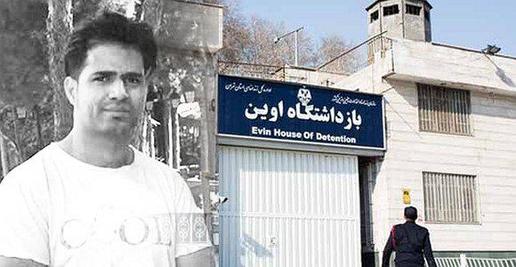The rapidly deepening coronavirus crisis in Iran has prompted government officials to consider new restrictions and plans to impose fines on people who fail to comply with health guidelines.
Government spokesman Ali Rabiei stated on September 29 that only 58 percent of the population was wearing masks. “Health guidelines are not fully observed in public places,” he said. “The National Coronavirus Taskforce has given more authority to provinces to take limited legal action against individuals who do not wear masks.”
Prior to this, on Sunday, September 27, Alireza Raeesi, a deputy health minister, had announced plans for further measures to fine coronavirus patients who have tested positive but fail to comply with home quarantine. “These measures will be carried out in cooperation with the experts, the judiciary and the police,” he said.
“The epidemic requires a tough, military-style response,” said Dr. Alireza Zali, director of the Tehran Coronavirus Taskforce, in an interview on the same day. “About the reopenings, I must say that they were hastily done in Tehran and affected the surge of the epidemic. And in addition to all this we have another problem as well, and that is enacting deterrent laws, although the National Coronavirus Taskforce is working on it.”
Dr. Zali continued: “We are going to deal with people who do not follow health guidelines as they do in 156 countries in the world. We can no longer beg people to follow the protocols. The epidemic requires a tough, military-style response. Of course, this does not mean that we should start treating people violently from tomorrow, but we cannot limit ourselves to advice and recommendations because it ends up hurting others. Therefore, violators must be punished.”
Farnoush Nobakht, the CEO of Tehran Metro Operating Company, said it was the National Coronavirus Taskforce's responsibility to set up a procedure to fine people who traveled on the metro without wearing masks. “There has been talk about fining individuals who do not wear masks in the metro but we cannot take such action independently,” he said. “We must follow the National Coronavirus Taskforce and its orders.”
Addressing the issue of the number of people using the metro, he said, “We cannot take specific action to reduce the number of Tehran metro users. We can only ask people to use the metro less.”
Tehran’s metro stations and trains are currently over-crowded, but so are emergency rooms. Dr. Mohammad Reza Hashemian, a specialist in intensive care, said even outpatients are forced to wait in long lines to be admitted to the emergency rooms. He described the situation in Tehran as “dark” and “critical” and reported that hospitals had run out of ICU beds. “Most private hospitals are either not permitted to admit coronavirus patients or do not want to, especially since private hospitals are not receiving the necessary medicine to treat coronavirus patients,” he said.
Health minister Saeed Namaki issued orders to punish government employees who violate coronavirus-related regulations. According to these orders, violators will at first be reprimanded in writing without the reprimand being included in their dossiers but, if the violations continue, the reprimand will go on their record.
Dr. Hashemian also reported that Remdesivir, a pharmaceutical that has proven effective in treating the symptoms of coronavirus, is being sold in the open market for eight million tomans, or over US$1,900 per vial. “In state hospitals only one or two doctors are permitted to prescribe Remdesivir,” he said. “That is why most coronavirus patients who need this medication go to the open market. The Iranian-brand Remdesivir that is sold for between 700 thousand and 1.2 million tomans ($167-$287) in hospitals costs eight million tomans in the open market.”
Commenting on the rise of coronavirus cases in recent weeks, Dr. Ehsan Mostafavi, an epidemiologist and a member of Institute Pasteur of Iran’s Scientific Board, said: “When coronavirus hospitalizations increase we will witness an increase in the number of fatalities in about two weeks,” he said. “Therefore, we must expect fatalities to surge in the coming weeks.”
In her daily briefing for September 29, the health ministry spokeswoman Dr. Sima Sadat Lari announced the official coronavirus statistics for the last 24 hours.
Dr. Lari also reported that out of the 31 Iranian provinces currently 30 provinces are in a high state of alert.
This is part of IranWire's coronavirus chronology. Read the full chronology
visit the accountability section
In this section of Iran Wire, you can contact the officials and launch your campaign for various problems





























comments